Music and sound are things that are intrinsically tied to the human experience. It brings us hope, it brings us joy. and it brings us comfort as human beings. Music has been with us through all of our history, and auditory story telling has been with even longer so.
The oral tradition has staved off dangerous nights and can be pinned for single handedly guiding humanity up until the modern day. That’s why when you are listening to music or other auditory media like a podcast you should pick the best file type for the job.
The m4a vs mp3 is a debate that is well known, so allow me to shed some light onto the conflict between the two auditory file types as well as which one may be the best to honor this ancient form of media known as sound.
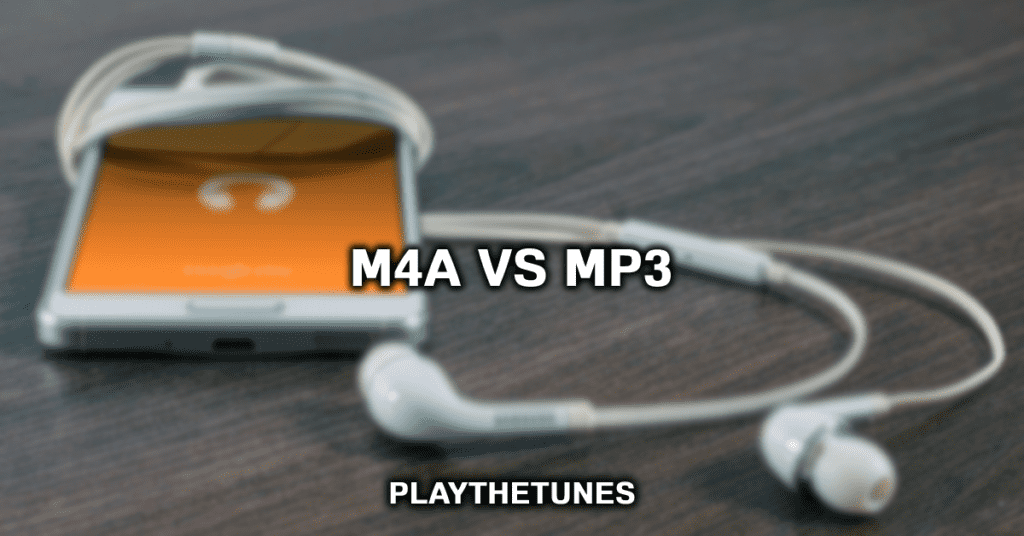
What is the history of audio files?
Back in 1991 a man by the name of Karlheinz Brandenburg created a file known as a bit file. This was a revolutionary file that was able to compress sound into a small packet of data that could be replayed time and time again on virtually any computer which had the technological know-how to do so.
After 1995 this file was then renamed to be the MPEG-1 Audio Layer III or MPEG-2 Audio Layer III file. After a few more years, these file names began to be phased out and replaced with the MP3 file name we all know and are very familiar with.
After a few more years another extension was born to indicate specific files that are open to the public to edit and use freely, this is the M4A file that fewer of us are familiar with and that has gained less widespread popularity.
What is an MP3 File?
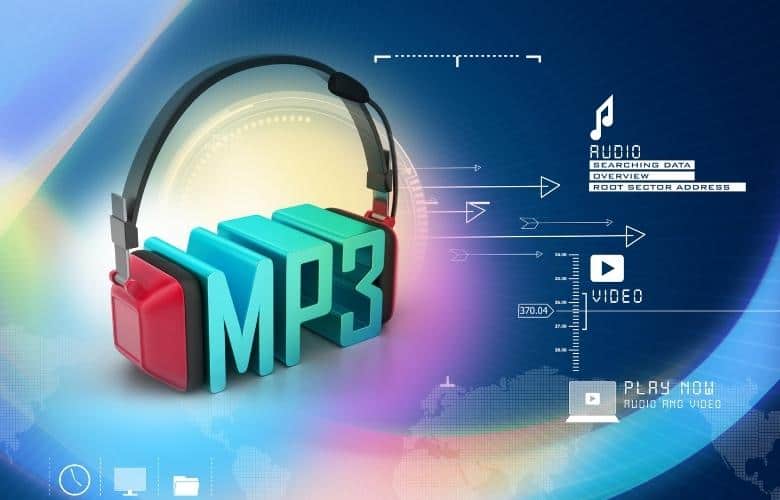
This file type is one of the most well known audio formats, if not the most well known overall format. It is universally known and able to work on most devices in a similar fashion. Since it is one of the earliest file formats, it has been something that has marketed for a long period of time.
Whether it be in devices like the MP3Player. which has the name MP3 in the name, or through CDs of the olden days bragging that they use specifically MP3 files on their discs to give top-notch quality, the MP3 file has become very familiar to the public. What made this file type so impressive back in the old days was the fact it was able to make itself relatively small by being compressed.
By ridding itself of excess data that most people can’t hear very well anyways, it was able to reduce the file size while keeping the same quality audio available for users to listen to.
What is an M4A File?
This file type is something of a successor to the older, much more outdated. MP3 format Unlike the MP3 file, it is compressed using MPEG-4 technology. This technology is most likely better known to the masses as what compresses MP4 files.
MP4 files is the file type that’s used for most videos, such as the ones you record on your phone, camera, or the ones you watched on the prehistoric version of youtube. In this way the M4A file is something of a strange middle ground between the MP4 and the MP3, being made with the same technology as the MP4, yet for the same purposes and functions as an MP3.
Expert Tip: This audio file type was relatively unknown for the longest time which is why you may not have heard of it. That was until Apple began to favor it in all their products. The reason for this shift is most likely to make it so that the only way to get music onto your phone was to buy it directly from the app store.
However, people have found a way around this and have gotten familiar with the file type, most likely for audio piracy, or. on the more optimistic side, in order to upload their own original music to their apple devices.
How are these two Files Similar?
These files are relatively similar in their purpose and their function, but that’s about it. There isn’t much else to say here other than they both play audio of some sort. Sure they both can be compatible on certain apple products, and they both can be used in programs like Audacity, but besides that there isn’t much more to say.
They both are created using two very different methods and they both are made with different purposes in mind for the audio itself. Sure, for the standard consumer, they both have the one glaring similarity in mind, but peel away the base layer and you find two very different systems.
How are these two Files Different?
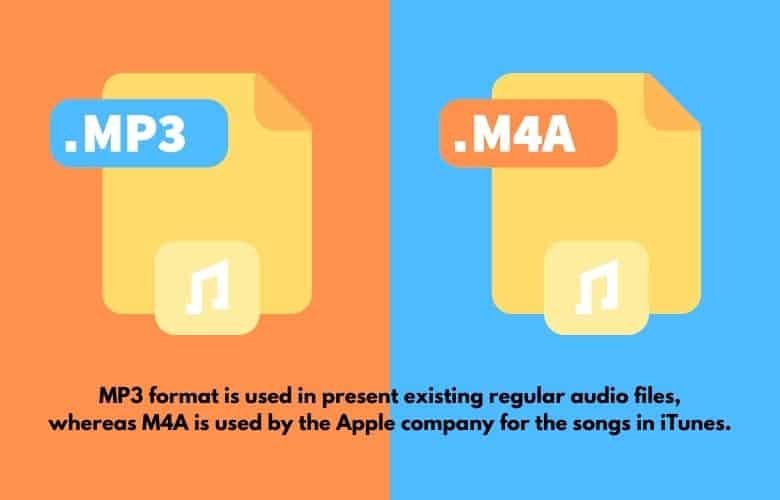
First off let’s begin by talking about the elephant in the room, quality. The quality of these two files is vastly different. I’m not saying in the sense that one is excellent quality and one belongs in a dumpster behind your local Apple Bee’s. I mean simply quality as in technological limitations.
Expert Tip: For starters, M4A has the ability to have a lot more done to it while still maintaining the same sound it had when it was recorded. Firstly it can get a much tighter compression, thus allowing it to get even smaller than MP3, while still maintaining the same bitrate.
With this considered, you can play high-quality music using files that are smaller than MP3. On the same coin, however, MP3 is much more easily created in my personal experience, with no need for external programs to do it, which makes it much easier to access.
Another thing that sets these two files apart is where, and how, they can be used. Their compatibility so to speak. M4A files, while not skimping on quality, don’t really make up for it with the versatility department. While it can be expected that this file type will eventually become more wide spread as people begin to catch up with what is bigger and better, for now we can only really talk about MP3s.
They take this section of the category very easily, being available on almost all devices available on the market today! It also doesn’t help that most sites also use MP3 files most of the time, while you may find the rare breed that does use M4A. most of the websites you visit will in fact have embedded MP3 files for their music.
The last thing to take into account is the other version of quality I mentioned. Not the quality as in how they keep up with technology, but instead actual audio quality. M4As simply sound better than MP3s. despite being more compressed, they may even be described to sound better at lower bitrates. which is saying a lot They’re just a better sounding audio file.
What are the pros and cons of an MP3 File?
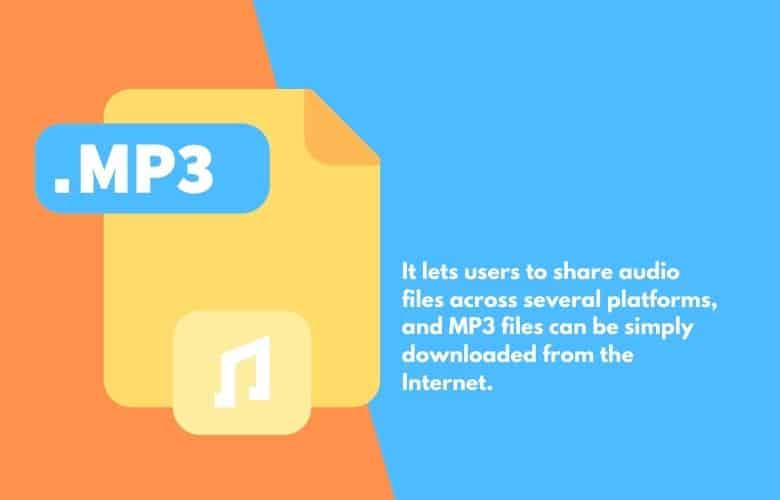
The main perk of MP3 files is that they are able to be played on almost every device, more importantly though, the file can be spread around very easily. It can be sent from person to person and can be shared without any issue.
Not only that but there are thousands upon thousands of free MP3 players available online for free. Also we all remember when I mentioned that M4A files sound better? Well that’s only a half truth. For most people the difference in quality is hardly noticeable.
Granted some songs are easier to notice than others, but other than that you wont need to really pay any mind to it unless you are doing professional music or are very picky about quality. Otherwise the file difference isn’t all too egregious. So in a way I guess you can say the one con that MP3 has isn’t even really a con at all.
What are the pros and cons of an M4A File?
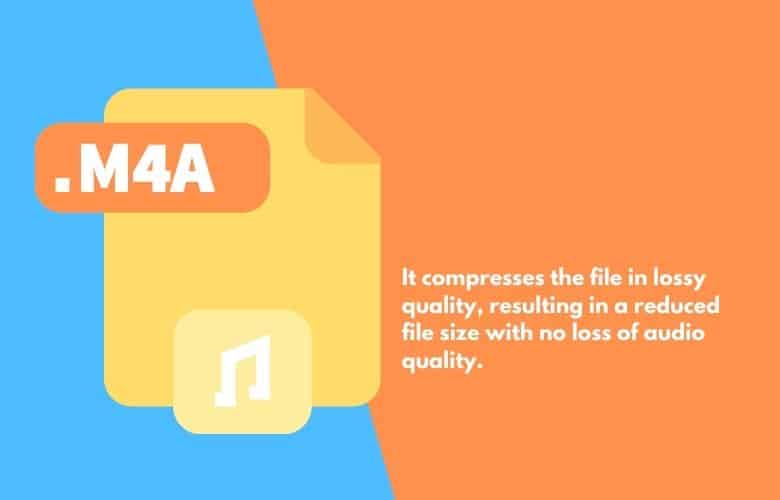
Now as for M4A files, this is a bit more noticeable. While this file type does offer more sound quality and it also allows for audio files to take up less room, it can’t be used on as nearly as many devices. While yes, it is true that you can downsize the data, and yes they are easy to edit and transfer as well as stream, they still aren’t very widely accessible on the wider market.
Sure your computer can utilize these files just fine, but your phone or your music player (does anyone still have music players?) may not be able to offer the same services. This can be tricky to the average consumer of this type of media.
Everyone needs music, but what’s the point for the casual listener if they have to jump between file types on different devices to listen to their favorite tracks? It really feels as though the pros of this style of audio is more so for musical artists and producers than the average joe.
Which is better?
Well this comes down mostly to your preference and what your needs are. Are you an average person that just wants to listen to music on the fly and doesn’t necessarily care about sound? Maybe you just want something to fill in the silence on your morning commute or something to play over the radio?
If that’s the case then go with an MP3 file, it is definitely a better bet At least until M4A files really start catching on.
Expert Tip: However if you are a musical artist hoping to get your pieces out into the world, wanting to make billboard charts, and wishing to soar to great heights — well perhaps go with both if I’m being honest..
Optimize your audio for an M4A file, but then add an MP3 version… I mean that’s what I do with my music. So. in a way. I guess MP3 really is the victor. At least, for now. Who knows, maybe ten years in the future it will be different and you wont have to worry about this debate. Perhaps in the future M4A will become the true and new MP3 instead of just a moderate name on the internet global sphere.
Well now what do I do? I have so much of X file, but Y file sounds so much better?
Well you’re in luck my friend. If you prefer M4A or MP3 files over the competitor, yet have been using one over the other, then there is a solution. I personally use a little program known as audacity to convert all my audio files, but there are other programs out there too.
Just look up M4A to MP3 converter (or visa versa), and you will find what you are looking for. Usually these programs are free to download and super easy to use. so it’s no big deal to convert one file to the next Just make sure whatever program you are downloading, you are doing it from a safe website with no viruses.
We don’t want any malware on our hands. This will also hopefully help all of you musical geniuses out there create your two audio files to spread around. Just make sure you label which one is the better quality of the two. since you now know all too well which one it should be. (Or at least I hope the M4A one is the better quality, even if by a little itty bit).
I hope that this article found you well and managed to answer some of your questions about the MP4 vs MP3 debate, but if you have any other ones that I didn’t answer, please leave a comment!
Overall it would appear that out of the two audio types, it’s MP3 that reigns supreme. Not only is MP3 only slightly worse off in quality, but it is also so much more widespread than the lesser known M4A. Of course this could change with time, and in the coming years MP3 may fade into obscurity like many of the old technologies of the past.
